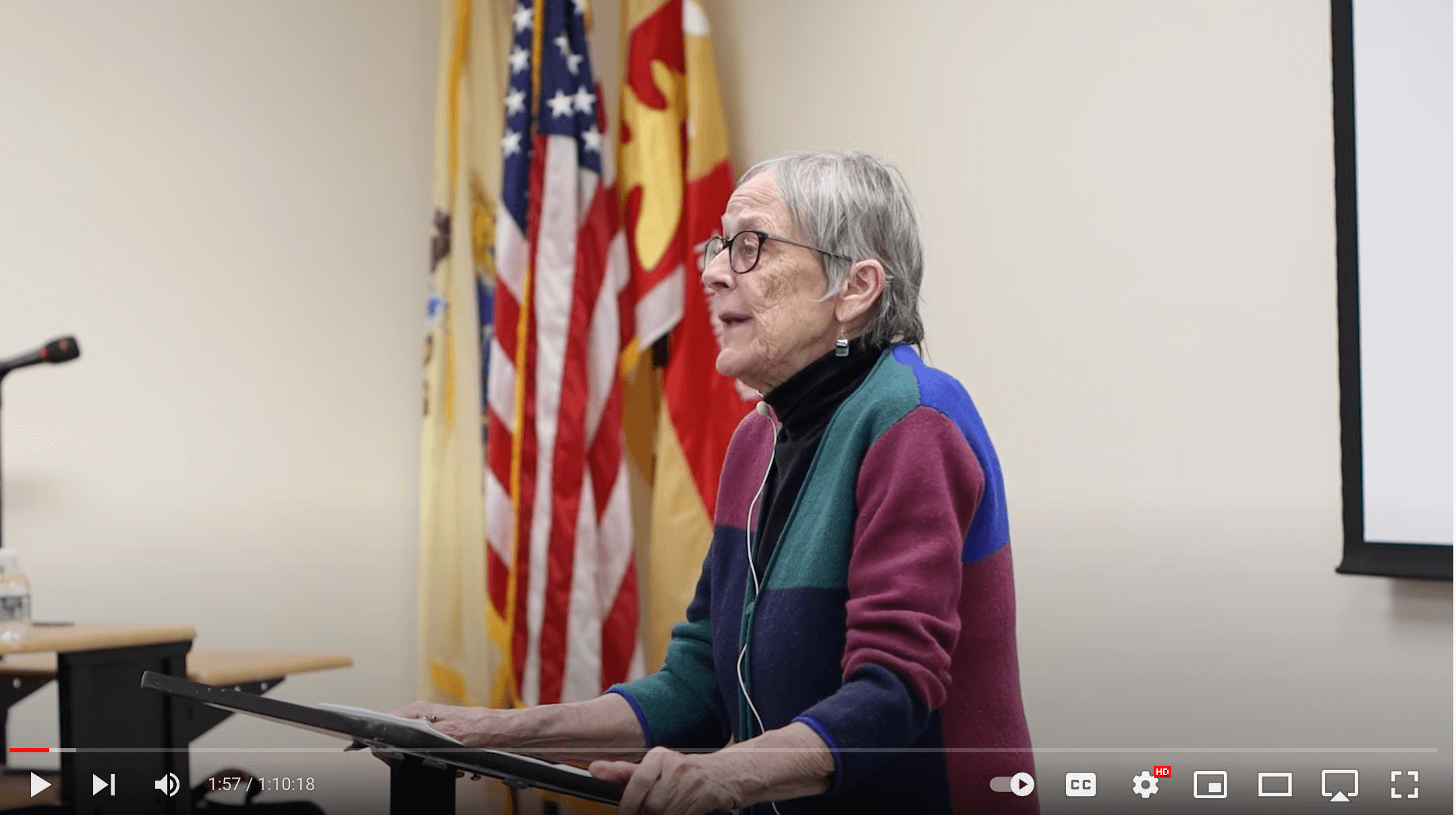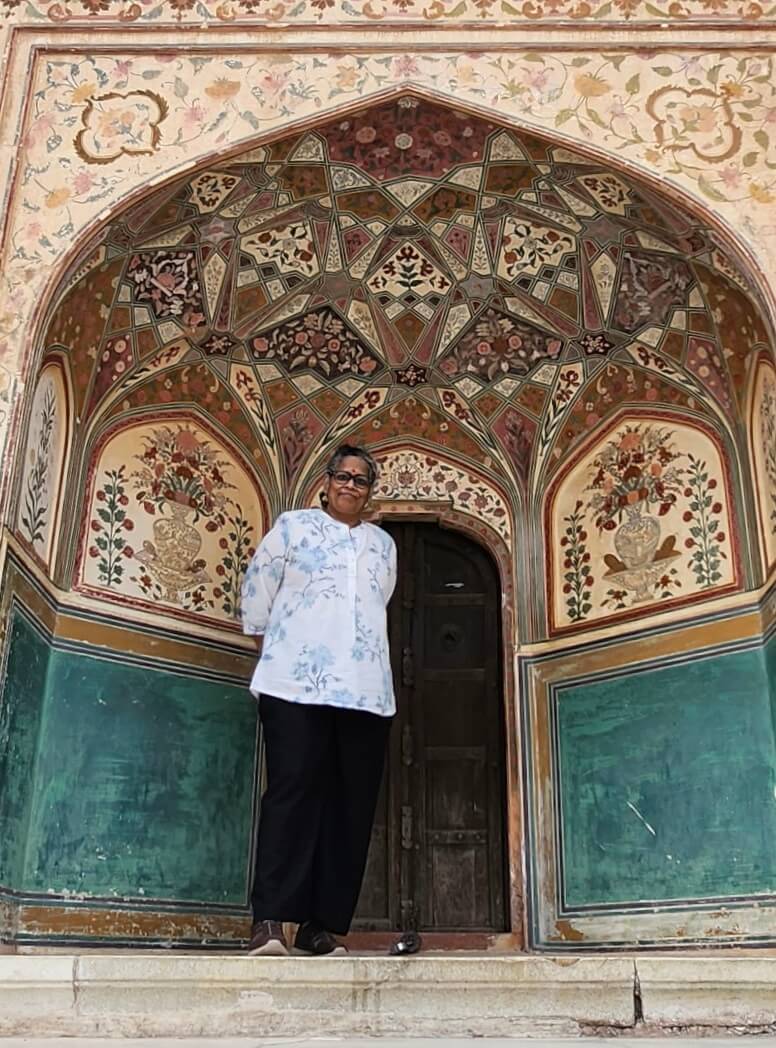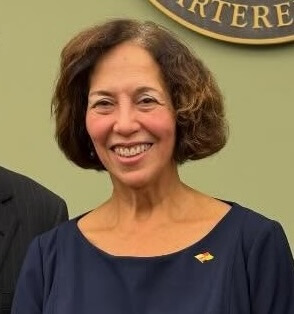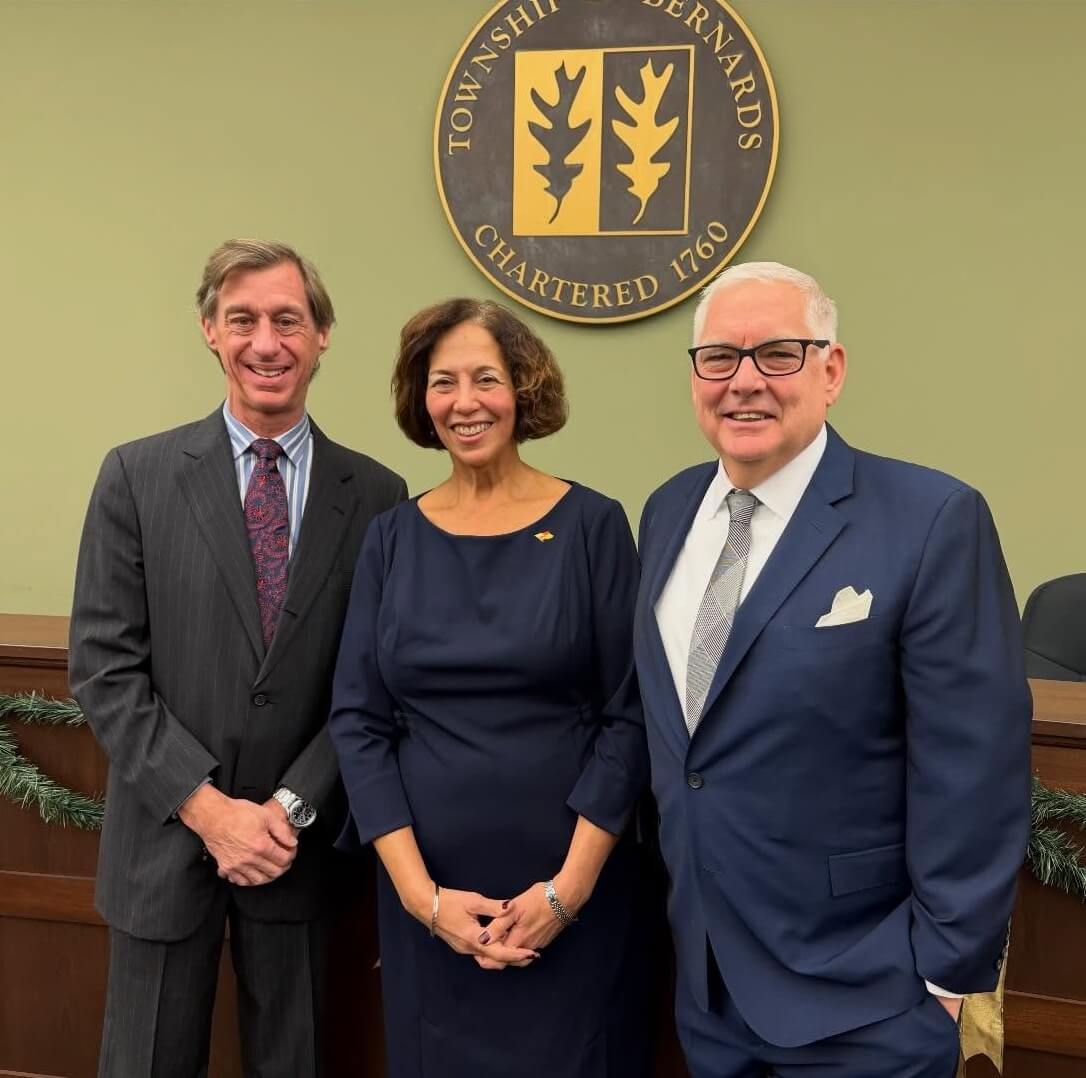Professor Mary Nolan, a scholar, historian, and professor emeritus at New York University, spoke about book bans, educational gag orders, and censorship to a packed house at the Bernards Township Library on March 28th. The rapt audience, comprised of community members from across the political spectrum, learned volumes about the current culture wars being fought over education.
According to Nolan, these culture wars are a threat not only to K-12 schools but to academic freedom in higher education. “The culture wars have many fronts, ranging from school boards to state legislatures, from concepts and curricula to books in both…public school libraries and public libraries, from diversity, equity, and inclusion initiatives to questions of job security and tenure,” she said.
Nolan led off with a discussion of educational gag orders, which is the name that PEN America, the advocacy group that champions open expression, has given to the laws aiming to curtail subjects that can be taught in K-12 schools as well as public colleges and universities. Educational gag orders are particularly focused on critical race theory, a subject not actually taught in K-12 or undergraduate classes but one that opponents have adopted as a catchall term for anything to do with race or racism. Another favorite target is any subject mentioning gender, sexuality, or LGBTQ issues.
As of this year, 101 educational gag orders are pending in 27 different state legislatures–not just in Florida and Texas, which have received an outsized share of media attention. The most comprehensive bill under discussion right now is Florida House Bill 999, which would prevent public institutions of higher learning from offering any major or minor incorporating critical race theory, radical feminism, gender theory, queer theory, or critical social justice, among others. “It’s not only attacking particular concepts and ideas, but saying you can’t have women’s studies or gender studies, you can’t have African-American studies, you can’t have Chicago studies,” Nolan explained.
New Jersey is not immune to these restrictive efforts. Currently, a bill under consideration in the New Jersey Senate prohibits anything to do with the teaching of critical race theory. A bill under consideration in the assembly prohibits any classroom instruction on sex, sexual orientation, gender identity, abortion, or birth control up to grade 5, and from grades 6 to 12 only with explicit parental permission. These moves are championed by conservative organizations like The New Jersey Project, which have made pushing back on what they consider to be sexualized curriculum standards the centerpiece of their efforts.
Efforts to censor reading materials and quash discussion of certain topics also are being led by the well-funded right-wing group Moms for Liberty, which has been instrumental in installing conservatives on school boards nationwide and is growing in our state; Republican governors and legislators, conservative media, and Christian nationalist and homeschooling parents are fueling this movement, according to Nolan. The ultimate goal, she believes, is to hollow out public education entirely in order to privatize schools.
In tandem with the attempts to control the curriculum, conservative activists have made book bans a hot topic both locally and nationally. The House of Representatives, which holds a slight Republican majority, recently passed the Parents Bill of Rights. This bill would force schools to make all classroom curricula publicly available and to provide parents with a list of all reading material in school libraries. Whether the bill will pass in the Senate is unknown, Nolan said.
Looking at the sheer numbers, though, it’s apparent that grassroots efforts to ban books have already had a measure of success. In a one-year period between 2021 and 2022, 2,532 separate instances of books being banned from school libraries occurred. Texas and Florida banned hundreds of books each, while New Jersey saw fewer than 10 banned. California, Nevada, and Massachusetts had no book bans.
During a question-and-answer period, an audience member who is a school librarian shared that the American Library Association has a campaign called United Against Banned Books and is partnering with other groups in this area. Another audience member asserted that parents who claim books are sexualizing their children hope not only to bring the issue to the New Jersey courts but ultimately bring it to the federal courts; he warned that extremists have been building this movement for years and those of us who don’t want book bans are “late to the party.”
How can people interested in preserving educational freedom fight back? Nolan urged people to write letters to the editor, ask candidates to make public declarations about their views on educational gag orders, and run for school boards in order to counter the extremism we’re seeing today. “If you control school boards, you can shape the local curriculum,” she stated. “You can ban specific books and concepts. And you can surveil what individual teachers assign and say in class, where boards are controlled by these groups claiming to speak for parental rights.”
Nolan recommends that citizens concerned about book bans check out these organizations:
The African-American Policy Forum. Created academic freedom petition.
*American Historical Association and Zinn Education Project. Both have an abundance of teaching materials online for K-12 educators.
*Historians for Peace and Democracy. Launching Historians-On-Call, an initiative to counter lies and distortions about what’s being taught in schools.
*National Education Association. The largest labor union in the country.





leave a comment+